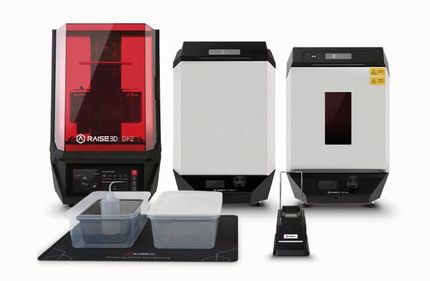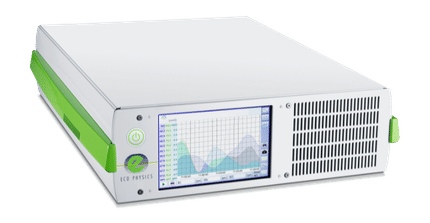To use all functions of this page, please activate cookies in your browser.
my.chemeurope.com
With an accout for my.chemeurope.com you can always see everything at a glance – and you can configure your own website and individual newsletter.
- My watch list
- My saved searches
- My saved topics
- My newsletter
IME Process Metallurgy and Metal Recycling at the RWTH AachenThe IME process metallurgy and metal recycling at the RWTH Aachen(IME) in Aachen represents the field of process metallurgy and metal recycling in research and training at the RWTH Aachen Aachen University. Its main aim is a qualification of process engineers that is related to practice and a development of effective environmentally sound and cost-effective processes for producing metallic basic material.
Product highlightThe IME is one of the primary institutes of the RWTH Aachen University and celebrated its 100th birthday in 1998. It is integrated in the section ‚Metallurgy and Materials' of the department of mining, metallurgy and earth science. This forms an ideal framework for contributing to the optimisation of process chains of a global network. On the basis of ore, as the geo resource, and scrap, as the consumption resource, modern functional materials are provided. Since Prof. Bernd Friedrich (formerly GfE/ Metallurgy and Varta) has taken over the charge in 1999 the process technology of developing and optimising the processes of complex high-capacity metals plays an important role. Based on application-oriented elementary work the IME aims at experimentally testing newly developed processes up to technical scales. Related to the demands of the industry this development always takes into consideration the aspect of economic efficiency. An essential prerequisite for this is ensuring precise methods of analysis, as the know-how that can be offered as service to customers. Fields of ResearchThe fields of research of the IME vary with the inevitably changing requirements and priorities of the industrial concerns connected to us. They cover almost the complete diversity of metal. The field of material process technology focuses on vacuum metallurgy with the procedure of inductive melting (VIM), the electroslag remelting process (ESR) and the electron beam rotating disc process (EBRD). International developments regarding the reduction of process chains have brought the IME the vertical continuous casting (also under vacuum) and the horizontal roll casting. The traditionally main focus on recycling metallurgy forms the basis of the application of our electric arc furnace. Used batteries and catalysts and also industrial residual material, such as dust, sludge or slags are fed/batched by its hollow electrodes. The fourth important aspect is the new laboratory for molten phases providing the basis for the systematic analysis of the properties of slag (e.g. its viscosity, density or conductivity). In its research and development activity the IME also emphasises the field of electrochemistry using the synergy of metal electrolysis and galvanotechnics for the development of new procedures and layers. TeachingsThe structural changes of the metal industry that have taken place during the last years have an effect on the qualification of engineers. In particular small and medium-sized companies demand interdisciplinary skills. Consequently, the qualification of the engineers has to include the fields of metallurgy, plant engineering and construction and information technology in order to facilitate the development of efficient metals and, thus, innovation. The study of non-ferrous metallurgy in the section "Metallurgy and Material Science" as being related to practise meets these demands. It focuses on the capability of the process development of both the production of innovative metallic resources and their recycling. The teachings in particular address students of metallurgy and material science. They are qualified either by the diploma course of studies "scientific engineer" requiring 10 semesters or the postgraduate studies "Master in Metallurgical Engineering" held both in the German and English language and requiring 4 semesters. Both courses of studies focus on process metallurgy, surface engineering and plant construction. In addition to the basic subjects such as mathematics and mechanics the elementary students have to attend special courses based on metallurgy. The IME offers the lecture „Introduction to Process Metallurgy“ in which also the subsequent fields of study are presented. The basic studies take 4 semesters and a concomitant 6-week practical training in the industrial field. It is completed by the intermediate diploma and is followed by the main study period. Seminars in the InstituteChair seminar: taking place weekly during the semester; scientific assistants and students present their diploma theses, study-integrated papers and projects. Industrial seminar: taking place four times during the semester; industry representatives are invited and give a lecture. Annually a practical seminar for the students of European Mining and Engineering Course (EMEC) is held giving the students an understanding of the recycling of light metal. DGM-seminars:Last year the institute arranged two seminars on copper continuous casting and vacuum metallurgy. |
| This article is licensed under the GNU Free Documentation License. It uses material from the Wikipedia article "IME_Process_Metallurgy_and_Metal_Recycling_at_the_RWTH_Aachen". A list of authors is available in Wikipedia. |







